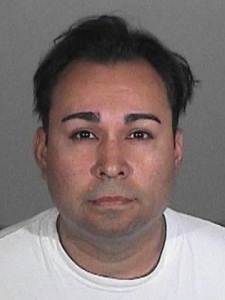3 Reasons to Control your own Assets
I read a couple of interesting financial articles this week, which the news media mostly ignored. The common theme was that investors were bilked, scammed and even murdered by unscrupulous money managers. Although most advisers are honest, hard-working professionals, these types of stories are becoming way too common to ignore. Relinquishing control of your assets can be fatal.
1. Theft is Common

Daniel Becerril II was arrested last week as a suspect in the stabbing death of Alexander Merman, a Santa Monica elementary school teacher. While investigating the homicide, which occurred in 2008, police discovered the financial advisor owed Mr. Merman a quarter million dollars. They also discovered $300,000 was missing from Merman’s accounts and deposited into accounts belonging to Becerril and his firm. There are dozens of other victims in this case and potentially millions in fraud, including a lady who was evicted from her own house, after it was illegally resold by Becerril and his associates.
Although they rarely lead to murder, theft of customer deposits by financial firms happens way too often. In my opinion, customer deposits should be guaranteed by regulators, just as they are in banks. But, they aren’t. FINRA (Financial Industry Regulatory Authority) has a stated mission of Investor Protection and Market Integrity. They have regulations against improper use of customers’ securities or funds. But, they don’t require their members to be bonded or audited. Customers who are defrauded rarely recover their deposits.
Never count on the integrity of a money manager.
2. Disclosure is Opaque
Allen Stanford was convicted of fraud Tuesday in a $7 Billion Ponzi scheme. Most of Stanford’s depositors haven’t received any of their investments back. There is some money in offshore accounts that may be recovered. But, most of the money was spent on Stanford’s lavish lifestyle. It’s amazing how he was able to convince depositors for so long that their money was safely invested, while he was using their deposits like a personal ATM. It helps to have your own bank in Antigua. It also helps to print up your own fake statements. I’m sure they were filled with colorful charts and projections.
Even when firms report deposits and earnings accurately, the disclosure requirements are often inadequate. Hedge funds and private equity firms have just recently been required to report to depositors by the recent Dodd-Frank law. The SEC quickly relaxed those requirements so that medium-sized funds only have to report annually and small firms aren’t required to report at all. These requirements don’t take effect until March 30, 2012, so existing investors have been in the dark.
Never trust reports or statements, unless they are audited.
3. Oversight is Lacking
MF Global plans bonuses for three of the executives who ran the company during its collapse. The former chief executive Jon Corzine hasn’t been charged despite the fact that $1.6 Billion was improperly removed from customer’s accounts prior to the bankruptcy. Corzine claims he never gave anyone authorization to commingle depositor’s funds, but it’s hard for me to believe the CEO wouldn’t be aware of transactions this large. Just prior to the collapse, Corzine was shopping for a chateau in France. A Chicago grand jury is investigating and may finally bring charges against MF Global executives. Much of the depositor’s money is still missing.
In the case of massive fraud, such as Stanford, Madoff and Corzine, regulators have usually received tip-offs or complaints and failed to protect depositors. The SEC received five separate credible complaints against Bernie Madoff and they investigated four times prior to the collapse. But, they never audited his books to ensure depositor’s funds were safe. They simply walked away, even though they discovered inconsistencies.
Never believe regulators will safeguard your investments.
The Bottom Line
The bottom line is that it’s risky turning your money over to a firm or an individual who isn’t audited regularly. Even the big firms who are audited have been known to misuse funds. The safest policy is to pay an advisor for financial advice and deposit money in your own investment accounts that are audited or insured.
“In limited professions there’s boundless theft.”
William Shakespeare – English Poet & Author
Recommended Reading
Intelligent Speculator – Are high returns over rated?
Vanity Fair – Jon Corzine’s Risky Business
Time Specials – Top 10 Swindlers: Allen Stanford
This post was featured on the Carnival of Personal Finance over at Thirty Six Months. If you aren’t familiar with the Carnival of Personal Finance, you need to check it out. It’s full of fascinating stories and great advice.
Thanks for the link:) And great post, I couldn’t agree more and thankfully, things do seem to be going in that direction with more and more investors taking control:)